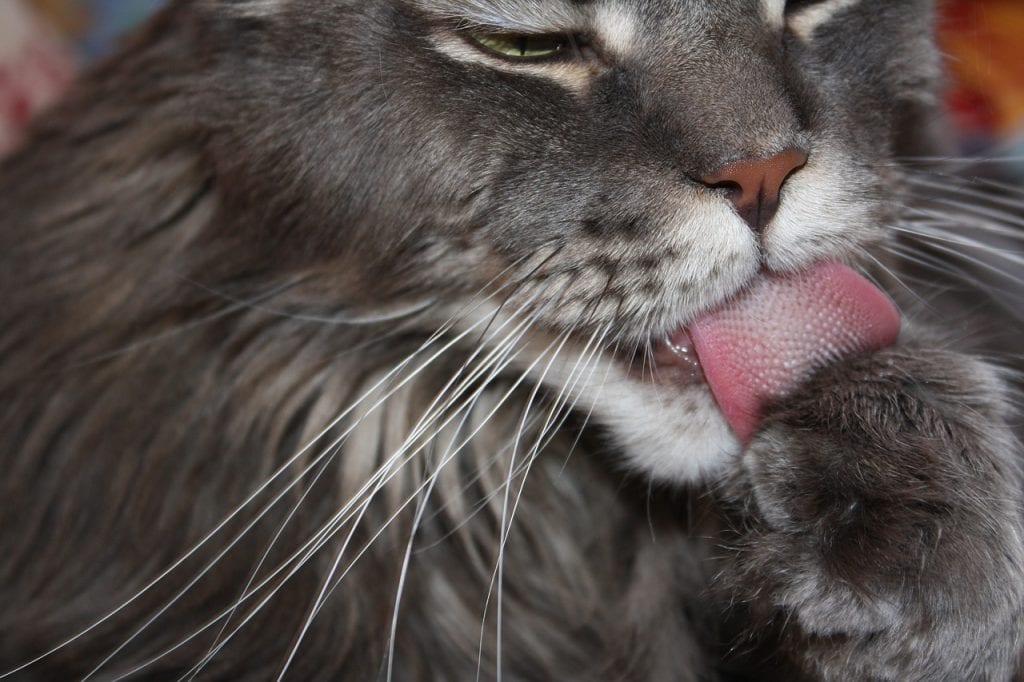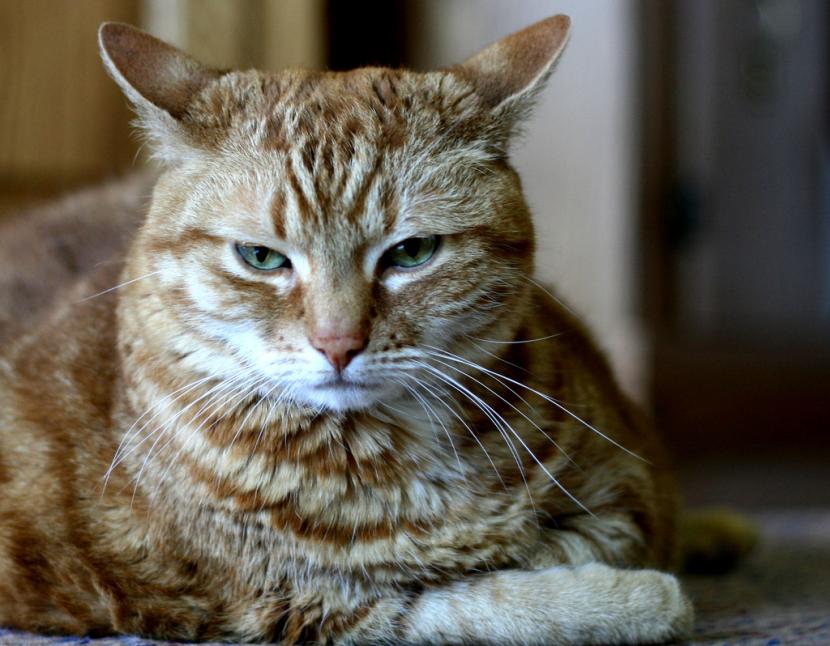
When we decide to adopt a cat we must be aware that it may fall ill from time to time throughout its life. And, even something as typical of him as grooming can cause problems.
In fact, acral lick granuloma in cats, although not very frequent, it can be chronic. If you want to know what the causes and their treatment are, then I'll tell you about it.
What is it?
The cat is an animal that seems to be obsessed with personal hygiene. They groom themselves several times a day: after eating, after a pampering session, after sleeping ... This is normal, but when they lick more than usual they can injure themselves. And, as we know, the surface of your tongue is not smooth, but rather has tiny hooks. These act like sandpaper, so if you lick a particular area too much, it will lose hair and, if the problem continues, it can cause damage.
Acral lick granuloma occurs precisely in those situations, when the animal repeatedly licks a specific area until losing hair and eroding the most superficial layers of the skin.
What are the causes?
Causes of acral lick granuloma in cats are the following:
- Mites
- Yeast infections
- Joint diseases
- Bacterial infections
- Cancer
- Allergies
- Trauma
What are the symptoms?
The symptoms are:
- Inflammation and bulging of the affected area.
- Redness of the area. In severe cases it will look blackened.
- The center of the lesion will be sore and red in color. If the situation worsens, we will also see a scab.
How is it diagnosed and treated?
Once we suspect that our cat is not well, we must take it to the vet. There, you may have a scrap cytology, biopsy, allergy tests, and / or X-ray to find out if there is trauma.
As soon as the diagnosis is confirmed, you will start treating it. Treatment will depend on the cause, which can be:
- Avoid exposing it to allergens.
- Topical treatment with analgesics and antipruritic drugs.
- Give you antibiotics.
- Prevent licking with mechanical devices in case of obsessive compulsive disorder.
- In severe cases, give topical or injected corticosteroids.

We must know that it is difficult to cure, but if in addition to doing what the veterinarian tells us we make sure that he has a happy and calm life, he will surely improve.